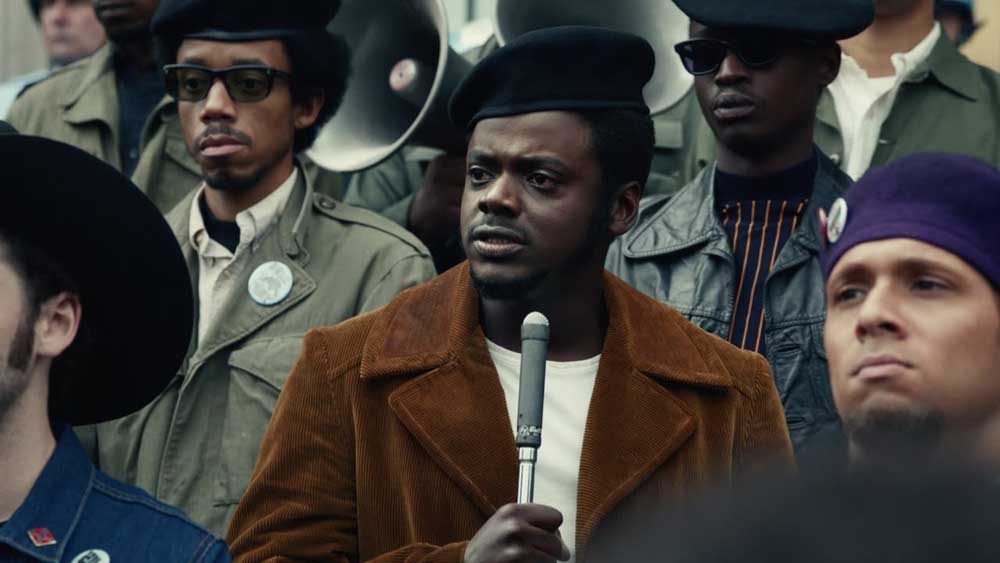Movie review: ‘Judas and the Black Messiah’
Published 2:00 pm Wednesday, February 17, 2021

- Daniel Kaluuya as Fred Hampton in a scene from “Judas and the Black Messiah.”
“Anywhere there’s people, there’s power.” This is one of many rallying cries from director and co-writer Shaka King’s new film “Judas and the Black Messiah.” The film is so full of quotes like this it might at first glance seem excessively preachy, but it’s not. Living up to its title, the film highlights the humanity and the work Illinois Black Panther Chairman Fred Hampton (played powerfully by Daniel Kaluuya) sought to achieve over the final year of his life.
But it’s not just his story or that of the Black Panthers. Attention is instead called to his Judas: Bill O’Neal (LaKeith Stanfield).
Trending
Beginning in 1968 with O’Neal, a 17-year old carjacker who uses a fake FBI badge to nick his chosen ride (“A badge is scarier than a gun” he says) and is then arrested. Faced with at least 15 years in prison, real FBI agent Roy Mitchell (Jesse Plemons) offers him a deal — infiltrate the Black Panther Party and Fred Hampton’s inner circle.
He agrees and the game is set in motion.
We find Hampton, the fervent orator delivering impassioned speeches and conducting work in the community including setting up free breakfast programs and free health clinics. We also see threads of the Black Panther’s more militant defenses which are neither glorified or vilified by anyone except for the FBI agents and J. Edgar Hoover (a heavily makeuped Martin Sheen) attempting to take down the party.
When O’Neal finds his way in, he quickly finds the most efficient avenues to get close to Hampton and easily feeds information to Mitchell and the FBI.
He follows Hampton as he eventually broadens’ the scope of the Party’s platform, enacting the Rainbow Coalition, uniting the Pather’s, the Crown’s, the Young Lords and the Young Patriots and other Chicago gangs of all backgrounds to form a nonaggression pact and work together to rise their respective communities out of poverty.
O’Neal rises to become head of the chapter’s security gaining him invaluable access. As time wears on though, it becomes more and more difficult to keep his composure and his apathy towards the movement.
Trending
We as an audience know what’s about to happen. Even if you are unaware of the history, the clue is in the title.
And told in perfectly biblical fashion, “Judas and the Black Messiah” weave the events leading up to the betrayal with powerful storytelling, strong performances throughout and vulnerability when discussing Hampton and his humanity.
Kaluuya is unflinching in his portrayal of Chairman Fred and Stanfield quietly plays the duality within O’Neal well.
What “Judas” does really well is it never turns any of its characters into a caricature.
The story does drag slightly through the second act but works to lay out every detail leading up to the climactic ending.
It is interesting that this was released within months of “Trial of the Chicago 7,” which takes place during the same time in and same place as “Judas” and reflects on similar themes. But “Judas” is the superior film.
The story is more compelling, and it is told more deftly. Where “Trial” becomes overly prophetic and wordy, “Judas” doesn’t feel like it’s banging the point and the allusions to modern-day activism and struggles over your head quite as much. The connections are there, but they feel more naturally placed.
Overall, the story leading up to the death of Fred Hampton is outstanding due to stellar performances and a solid script that make “Judas and the Black Messiah” captivating in a world that still faces similar strife nearly 60 years later.
“Judas and the Black Messiah”
126 minutes
Rated R for violence and pervasive language
3.5 stars








